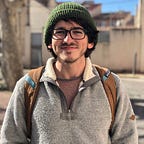Gather your Seeds
Once and for all, you have seeds.
From the beginning, the world stopped. I saw the environment change course. Carbon dioxide decreased, transportation was suspended, animals roamed the empty streets humans once preoccupied. For almost three months, nature was taking a different direction. There is hope for a better future if we commit to a cleaner future for the earth. Now, more than ever is a time to seek better soil for us and our loved ones.
Composting is the means to produce healthier soil by increasing microbial life. A diversity of good bacteria is the foundation for growth. Microbes are harbored in humans and outnumber human cells 10 to 1. (NIH Human Microbe Project) Over time, compost will start to diversify with fungi, microbes, and bacteria to create the start of all vegetation. Now, seeds can be placed in the biologically rich soil to slowly mature into life.
The environment teaches us life lessons about growth and diversity. Ever since the pandemic took us by surprise, I slowly became interested in the idea of harvesting waste and creating compost out of it. Using waste, to create change over time, producing the start of biological life. The uncertain times we are living in has given us space to ponder our production. What do we aspire to create for our future to envelop us with gratitude? Shall we have a composting of our decisions, actions, and passions?
To start, we need seeds. A flowering plant can only be useful in rich soil, but it starts with the seeds. First, compost back to life, then start a new seed. Let's start.
